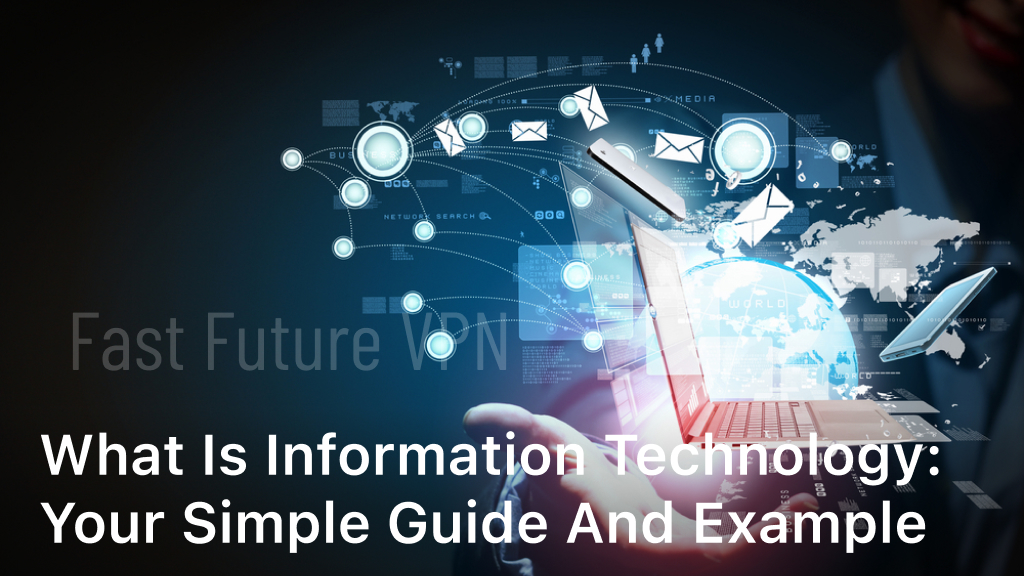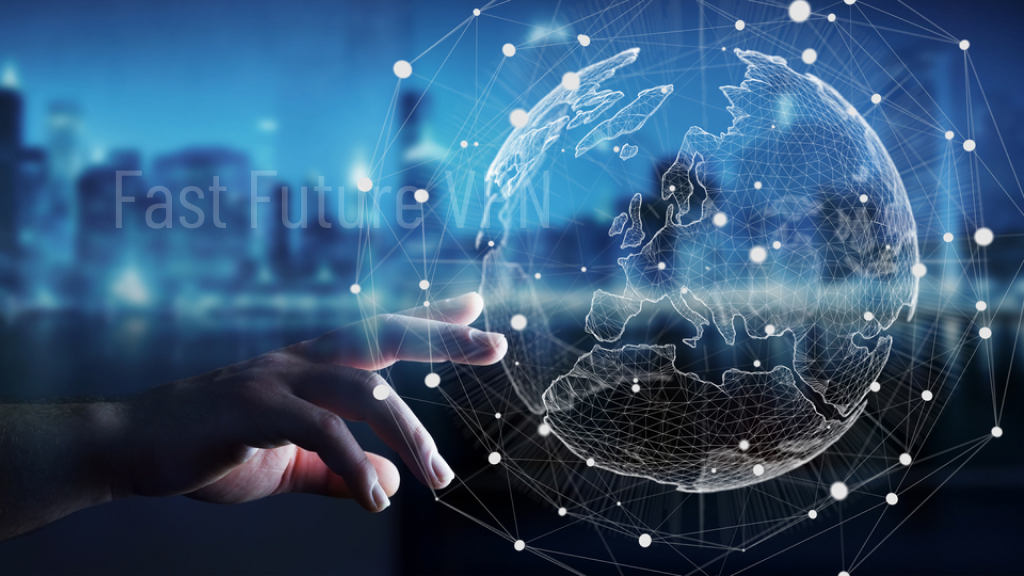
What is Information Technology? As technology continues to advance at a rapid pace, it can be challenging to keep up with the latest terms and concepts. One such term that has become increasingly popular in recent years is Information Technology (IT).
But what exactly is IT, and how does it impact our lives?
In this section, we will provide a simple and easy-to-understand guide on what Information Technology (IT) is and provide examples to help illustrate its concepts. We will explore the definition of IT, delve into the various aspects and components that make up IT, and cover topics such as networks, databases, software development, cybersecurity, and more.
So join us as we navigate the complex world of Information Technology and discover how this field is changing the way we live, work, and interact with the world around us. Let’s begin by exploring the definition of Information Technology and its role in today’s digital world.
Keywords: What is Information Technology, Information Technology
What is Information Technology
In this section, we will delve deeper into the definition of Information Technology and explore the various aspects that make up this vast field. IT refers to the use of technology to process, store, retrieve, and transmit information. It encompasses all forms of technology, from hardware to software, and covers a wide range of industries and applications.
Hardware and Software
Hardware refers to the physical components of a computer system, such as the central processing unit (CPU), memory, and storage devices. Software, on the other hand, is the set of instructions that tells the hardware what to do. It includes applications like word processors, games, and web browsers, as well as the operating system that manages the computer’s resources.
Networking and Communication
Networking allows computers to communicate with each other, whether in the same room or on opposite sides of the world. It involves the use of devices like routers, switches, and modems, as well as protocols like TCP/IP and HTTP. Communication technologies, such as email, instant messaging, and video conferencing, enable people to connect and collaborate in real-time, no matter where they are located.
Data Management and Analytics
Data management involves the collection, storage, organization, and retrieval of data. It includes the use of database management systems (DBMS), which allow businesses to store and manage large amounts of data efficiently. Analytics refers to the use of software tools and algorithms to analyze and interpret data, to derive insights and make informed decisions.
Cybersecurity and Information Assurance
Cybersecurity refers to the protection of computer systems and networks from theft, damage, or unauthorized access. It includes measures like firewalls, antivirus software, and intrusion detection systems, as well as the use of encryption and secure communication protocols. Information assurance is a broader concept that encompasses not only cybersecurity but also the policies, procedures, and practices that help ensure the confidentiality, integrity, and availability of information.
Overall, the field of Information Technology is vast and complex, encompassing a wide range of technologies and applications. It plays a vital role in our modern digital world, enabling businesses, governments, and individuals to communicate, collaborate, and innovate in ways that were once unimaginable.
Key Concepts of Information Technology
In the world of Information Technology, there are several key concepts that are crucial to understanding the field’s central principles. Here are a few of the most important:
1. Networks
Networks are the backbone of most modern IT systems. They allow devices to communicate with each other, creating a seamless flow of data and information. Networks can be both wired and wireless, and they come in a variety of sizes and configurations.
2. Databases
Databases are essential for storing and managing large amounts of data. They allow users to organize information in a structured way, making it easier to access and analyze. Databases can be relational or non-relational, and they are used in a wide range of applications, from business to healthcare.
3. Software Development
Software development is the process of creating applications that run on computers or other devices. It involves designing, coding, testing, and deploying software to meet specific needs and requirements. Software developers use a variety of programming languages and tools, and they work in many different industries.
4. Cybersecurity
Cybersecurity is the practice of protecting computer systems and networks from theft, damage, or unauthorized access. It involves a range of technologies, techniques, and best practices to ensure that data and systems remain secure. Cybersecurity threats are constantly evolving, and IT professionals must stay up-to-date on the latest threats and defenses.
5. Cloud Computing
Cloud computing is a model of IT service delivery that allows users to access resources over the internet. It involves storing data and running applications on remote servers, rather than on local computers. Cloud computing is flexible, scalable, and cost-effective, making it an increasingly popular option for businesses of all sizes.
These are just a few of the many key concepts that make up the world of Information Technology. By understanding these concepts, you can gain a deeper appreciation for the complexity and significance of IT in our daily lives.
Examples of Information Technology
Information Technology (IT) is present in every aspect of life, from personal devices to healthcare, finance, education, transportation, and entertainment. Here, we will provide real-life examples of how IT is used in different industries and sectors, showcasing its impact and significance.
Healthcare
The healthcare industry relies heavily on IT to improve patient care and outcomes. Electronic Health Records (EHRs) allow healthcare professionals to access patients’ medical histories, diagnoses, and treatments, streamlining and better managing care. Telemedicine uses IT to provide remote healthcare services, giving patients access to medical professionals from the comfort of their homes. Medical imaging and analysis software, such as MRI and CT scans, enable doctors to make more accurate diagnoses. Wearable technology, like fitness trackers and smartwatches, help individuals monitor their health and fitness goals.
Finance
IT has revolutionized how financial institutions operate, increasing efficiency, accuracy, and security. Online banking and mobile apps enable customers to manage their finances from anywhere, at any time. Trading platforms and robo-advisors use IT to provide investment advice and manage portfolios. Fraud detection software helps banks and credit card companies identify and prevent fraudulent transactions. Blockchain technology is transforming how transactions are processed and verified, improving security and reducing costs.
Education
IT is transforming how education is delivered, making learning more accessible, interactive, and engaging. Online courses and e-learning platforms provide students with flexibility and convenience, allowing them to learn at their own pace and from anywhere. Gamification uses IT to incorporate game elements into learning, making it more fun and motivating. Educational software, such as Learning Management Systems (LMS), enable teachers to manage and track students’ progress. Virtual and augmented reality technologies provide immersive and interactive learning experiences.
Transportation
IT is changing how we travel, making transportation safer, more efficient, and sustainable. GPS navigation systems help drivers navigate and find the quickest routes, reducing travel time and fuel consumption. Ride-sharing and peer-to-peer car rental apps provide cost-effective and convenient transportation options. Autonomous vehicles use IT to navigate and operate, reducing accidents and traffic congestion. Traffic management and control systems use IT to monitor and manage traffic flow, improving safety and reducing emissions.
Entertainment
IT is transforming how we consume and enjoy entertainment, connecting us to a vast array of content and experiences. Streaming services, such as Netflix and Hulu, provide on-demand access to movies, TV shows, and music. Social media platforms enable us to interact with content, share our experiences, and connect with others. Gaming and virtual reality technologies provide immersive and engaging experiences, blurring the lines between reality and fantasy.
The Benefits of Information Technology
At this point, it is clear that Information Technology (IT) is an essential part of our daily lives. Its significance extends beyond personal use, helping businesses and organizations operate more efficiently and effectively. In this section, we will explore the benefits of IT, highlighting its positive impact on various sectors and industries.
Improved Efficiency
One of the significant benefits of IT is its ability to improve efficiency. Through automation of various processes, businesses can save time and reduce the workforce needed to complete tasks. For example, inventory management, invoicing, and order processing can be streamlined using software and digital tools. This results in faster turnaround times, improved customer satisfaction, and increased profitability.
Better Communication
Effective communication is crucial in any business or organization. IT has revolutionized communication methods, making it easier and faster to send and receive information. Email, instant messaging, and video conferencing tools have made it possible to connect with colleagues, customers, and partners from anywhere in the world. This has eliminated geographical barriers, allowing businesses to operate globally and expand their reach.
Fostering Innovation
IT has also fostered innovation in various industries. Digital tools and technologies have allowed businesses to develop new products and services that were previously impossible or too costly. For instance, e-commerce platforms have made it possible for small businesses to compete with larger ones by offering products online. IT has created a level playing field, encouraging more entrepreneurs to start businesses and fostering creativity and innovation.
Driving Economic Growth
IT has had a significant impact on economic growth. By facilitating international trade and increasing productivity, IT has contributed to the growth of various industries, including finance, healthcare, and manufacturing. It has also created new job opportunities, with the demand for IT professionals continuing to rise. This has boosted economic growth and helped many countries improve their standard of living.
In conclusion, the benefits of Information Technology are numerous and far-reaching. IT has improved efficiency, facilitated communication, fostered innovation, and driven economic growth. As technology continues to evolve, it is safe to say that the benefits of IT will be even more significant in the future.
Information Technology Careers and Roles

In the field of Information Technology, there are numerous career opportunities and roles available for those with the necessary skills and qualifications. From software developers to cybersecurity experts, below we will discuss some of the most common IT careers and their roles.
Software Developer
A software developer is responsible for designing, developing, and testing computer software applications. They work closely with clients or end-users to determine their needs and develop software that meets those requirements. A bachelor’s degree in computer science or a related field is typically required for this role.
Database Administrator
Database administrators are responsible for managing and maintaining computer databases. They ensure that data is securely stored, organized, and easily accessible to authorized users. A bachelor’s degree in computer science or a related field is typically required for this role.
Network Administrator
A network administrator is responsible for managing a company’s computer network and ensuring that it operates efficiently and securely. They monitor network performance, troubleshoot issues, and implement new technologies as needed. A bachelor’s degree in computer science or a related field is typically required for this role.
Cybersecurity Analyst
Cybersecurity analysts are responsible for protecting a company’s computer systems and data from unauthorized access, theft, or damage. They monitor for security breaches, develop and implement security policies and procedures, and maintain knowledge of the latest security threats and solutions. A bachelor’s degree in computer science or a related field is typically required for this role.
IT Project Manager
An IT project manager is responsible for overseeing and managing projects related to computer systems and technology. They develop and manage project plans, monitor progress, and ensure that projects are completed on time and within budget. A bachelor’s degree in computer science or a related field is typically required for this role.
IT Consultant
An IT consultant provides expert advice and guidance to companies on how to use technology to meet their business goals. They assess a company’s technology needs, develop strategies and plans to meet those needs, and assist in implementing new technologies as needed. A bachelor’s degree in computer science or a related field is typically required for this role.
The Impact of Information Technology on Society
Information Technology has had a profound impact on society, transforming the way we live, work, and interact with one another. The widespread adoption of IT has created new opportunities, improved efficiency, and facilitated communication on a global scale.
One of the most significant impacts of IT on society has been the democratization of information. The internet has opened up new avenues for learning, research, and collaboration, allowing anyone with an internet connection to access vast amounts of information. This has led to an increase in education and knowledge-sharing, empowering individuals and communities around the world.
Information Technology has also revolutionized the way we communicate. Social media platforms, email, and messaging apps have made it easier than ever to stay connected with friends, family, and colleagues, regardless of distance or time zone. This has created new opportunities for collaboration, networking, and relationship-building.
In addition to these social impacts, Information Technology has also transformed industries, driving innovation and creating new business models. For example, the rise of e-commerce has disrupted traditional retail, while digital marketing has enabled companies to reach new audiences and target customers more effectively.
However, the impact of Information Technology on society is not without its challenges. Concerns about data privacy, cybersecurity, and the potential for automation to displace human jobs are all valid considerations that must be addressed as we continue to embrace new technologies.
Overall, the impact of Information Technology on society has been both profound and complex. While it has created new opportunities and driven innovation, it has also presented new challenges and ethical considerations. As we continue to navigate this rapidly evolving landscape, it is essential that we remain vigilant, proactive, and mindful of the potential consequences of our actions.
Emerging Trends in Information Technology
Information Technology is constantly evolving, and staying up-to-date with the latest trends and advancements is critical for businesses to maintain a competitive edge. Here, we will discuss some of the emerging trends that are shaping the future of Information Technology.
Artificial Intelligence
Artificial Intelligence (AI) has become a buzzword in the tech industry, and for good reason. AI technologies are transforming industries and providing innovative solutions to complex problems. From natural language processing to image recognition and chatbots, AI is enhancing customer experience, automating tasks, and improving decision-making processes.
Cloud Computing
Cloud computing has been around for some time, but the technology is evolving rapidly, and its impact is becoming more widespread. Cloud services offer businesses the agility to scale their operations and infrastructure as needed while reducing costs and improving security. The rise of edge computing is also changing the way data is processed, stored, and analyzed, with more emphasis on distributed computing and real-time processing.
| Cloud Computing Benefits | Edge Computing Benefits |
|---|---|
| Scalability | Reduced Latency |
| Cost Savings | Bandwidth Optimization |
| Flexibility | Improved Security |
Internet of Things (IoT)
IoT refers to a network of interconnected devices that can communicate with each other to share data and perform tasks. IoT has the potential to revolutionize industries such as healthcare, transportation, and manufacturing by enabling real-time monitoring and automation. The proliferation of smart home devices and wearables is just the tip of the iceberg, and we can expect to see more IoT-enabled solutions in the years to come.
Cybersecurity
The rise of new technologies brings new security challenges. Cybersecurity threats are becoming more sophisticated and frequent, and businesses need to be proactive in protecting their assets. AI-powered cybersecurity solutions can help detect and mitigate threats in real-time, while blockchain technology is gaining traction as a secure way to store and manage sensitive data.
5G Networks
5G networks are poised to revolutionize the way we connect and communicate. With faster speeds, lower latency, and increased bandwidth, 5G networks will enable new applications and use cases, such as autonomous vehicles, virtual reality, and smart cities. The rollout of 5G networks is still in its early stages, but we can expect to see more widespread adoption in the near future.
These are just a few examples of the emerging trends in Information Technology. It is important for businesses and individuals to stay informed and adapt to these changes to remain competitive in the digital landscape.
Challenges and Future of Information Technology
In the rapidly evolving world of Information Technology (IT), there are a number of challenges and opportunities that lie ahead. As technology continues to advance, new challenges will arise that must be addressed in order to maximize the benefits of IT while minimizing its risks.
The Challenges of Information Technology
One of the biggest challenges facing IT is cybersecurity. As technology continues to advance, the risk of cyber attacks and data breaches also grows. It is crucial that organizations of all sizes have effective cybersecurity measures in place to protect against these threats.
Another challenge is the ethical considerations surrounding emerging technologies such as artificial intelligence and automation. As these technologies become more advanced and widespread, it is important to consider their impact on society and ensure that they are being used ethically.
Furthermore, the rapidly expanding field of IT requires a highly skilled workforce. There is a growing demand for professionals with advanced technical skills, and organizations must compete to attract and retain top talent.
The Future of IT
The future of IT is exciting and full of possibilities. As technology continues to evolve, we can expect to see continued advancements in areas such as artificial intelligence, the Internet of Things, cloud computing, and more.
Additionally, IT will continue to play a critical role in shaping the economy and driving growth. With the increasing reliance on technology in all industries, there will be growing demand for skilled professionals who can design, develop, and maintain advanced systems and applications.
However, as technology continues to evolve, it is crucial that we also address the challenges and risks that come with it. By staying ahead of emerging threats and ethical considerations, we can maximize the benefits of IT and ensure a bright future for this rapidly evolving field.
Conclusion
In conclusion, What is Information Technology has highlighted the importance of this field in today’s digital world. We have defined what Information Technology is and delved deeper into its various aspects and key concepts.
Through real-life examples, we have seen how Information Technology is used in different industries and have discussed the benefits and advantages it brings, including improved efficiency, communication, and innovation.
Furthermore, we have explored the various career opportunities within IT and the evolving landscape of this field. As we have seen, Information Technology has had a profound impact on society, transforming industries and shaping the way we live.
Finally, we have discussed the emerging trends and advancements in Information Technology and the challenges that lie ahead, such as cybersecurity threats and ethical considerations.
As we look to the future of Information Technology, it is clear that this field will continue to shape our world and drive innovation. We must continue to stay informed and adapt to the changing landscape to fully realize the potential of Information Technology in all aspects of our lives.
FAQ
What is Information Technology?
Information Technology (IT) refers to the use and management of computers, software, networks, and electronic systems to store, process, transmit, and retrieve information. It encompasses a wide range of technologies and practices that support the collection, storage, manipulation, and dissemination of data.
How would you define Information Technology?
Information Technology can be defined as the application of computers and telecommunications equipment to store, retrieve, transmit, and manipulate data. It involves the use of hardware, software, networks, and databases to facilitate the management and processing of information.
What are the key concepts of Information Technology?
Key concepts of Information Technology include networks, databases, software development, cybersecurity, data analysis, cloud computing, artificial intelligence, and computer hardware. These concepts form the foundation for understanding and implementing IT systems and solutions.
Can you provide some examples of Information Technology?
Certainly! Examples of Information Technology include computer systems, mobile devices, websites, software applications, social media platforms, databases, cloud storage, computer networks, cybersecurity tools, and digital communication systems. These technologies are used in industries such as healthcare, finance, education, entertainment, and more.




